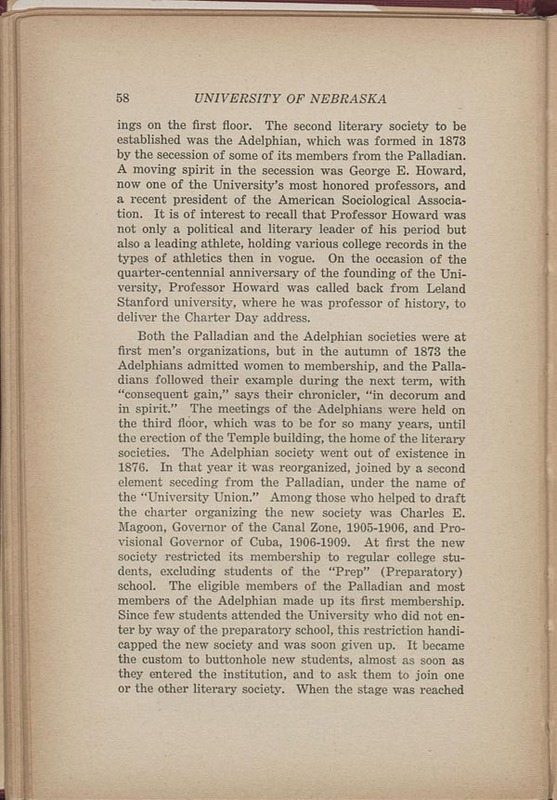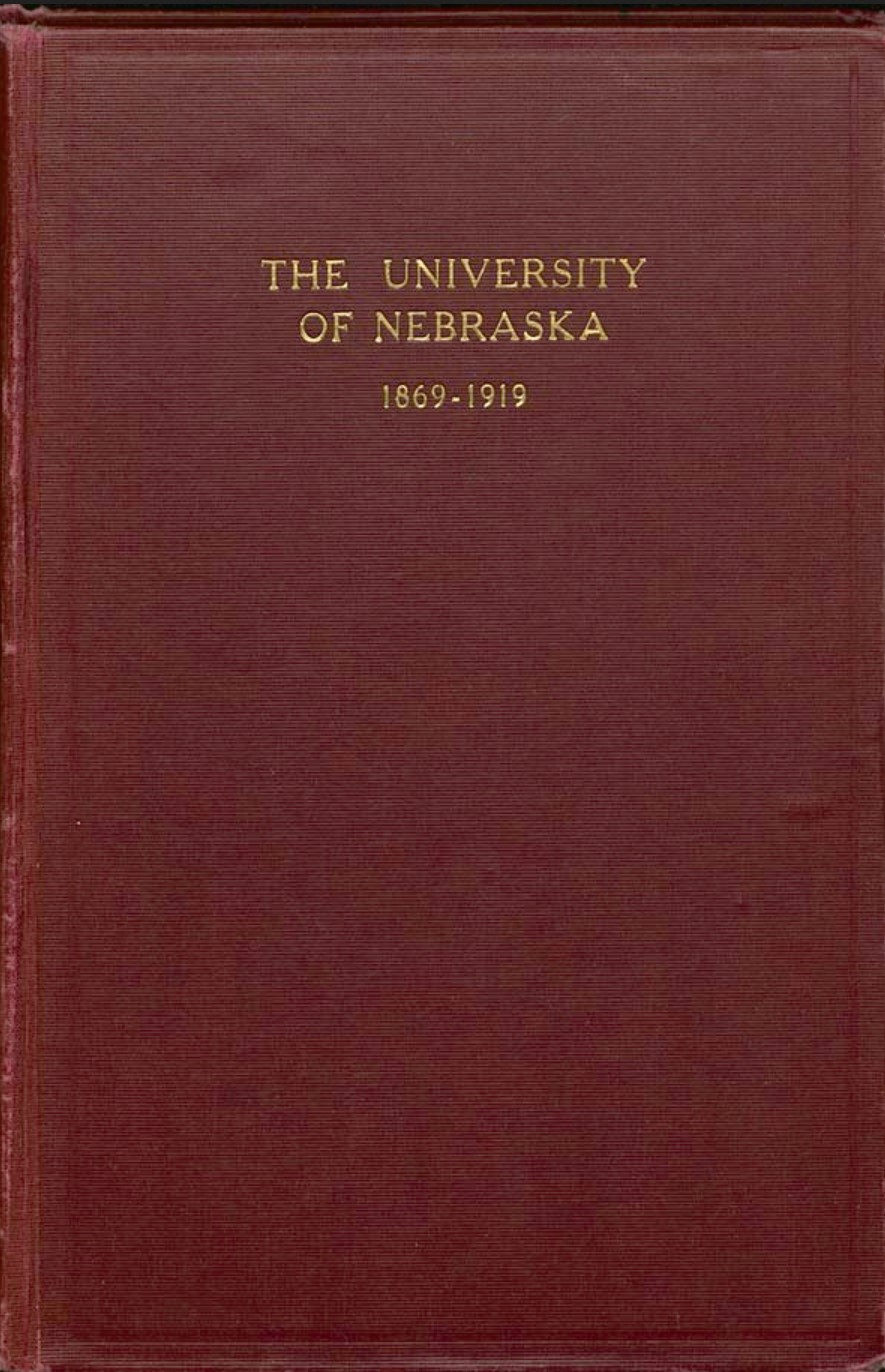062
Item
-
Title
-
062
-
Description
-
Semi-Centennial Anniversary Book: The University of Nebraska, 1869-1919
-
Transcription
-
ings on the first floor. The second literary society to be established was the Adelphian, which was formed in 1873 by the secession of some of members from the Palladian. A moving spirit in the secession was George E. Howard, now one of the University's most honored professors, and a recent president of the American Sociological Association. It is of interest to recall that Professor Howard was not only a political and literary leader of his period but also a leading athlete, holding various college records in the types of athletics then in vogue. On the occasion of the quarter-centennial anniversary of the founding of the University, Professor Howard was called back from Leland Stanford university, where he was professor of history, to deliver the Charter Day address.
Both the Palladian and the Adelphian societies were at first men's organizations, but in the autumn of 1873 the Adelphian admitted women to membership, and the Palladians followed their example during the next term, with "consequent gain," says their chronicler, "in decorum and in spirit." The meetings of the Adelphians were held on the third floor, which was to be for so many years, until the erection of the Temple building, the home of the literary societies. The Adelphian society went out of existence in 1876. In that year it was reorganized, joined by a second element seceding from the Palladian, under the name of the "University Union." Among those who helped to draft the charter organizing the new society was Charles E. Magoon, Governor of the Canal Zone, 1905-1906, and Provisional Governor of Cuba, 1906-1909. At first the new society restricted its membership to regular college students, excluding students of the "Prep" (Preparatory) school. The eligible members of the Palladian and most members of the Adelphian made up its first membership. Since few students attended the University who did not enter by way of the preparatory school, this restriction handicapped the new society and was soon given up. It became the custom to buttonhole new students, almost as soon as they entered the institution, and to ask them to join one or the other literary society. When the stage was reached
-
Rights
-
To inquire about usage, please contact Archives & Special Collections, University of Nebraska-Lincoln Libraries. These images are for educational use only. Not all images are available for publication.



